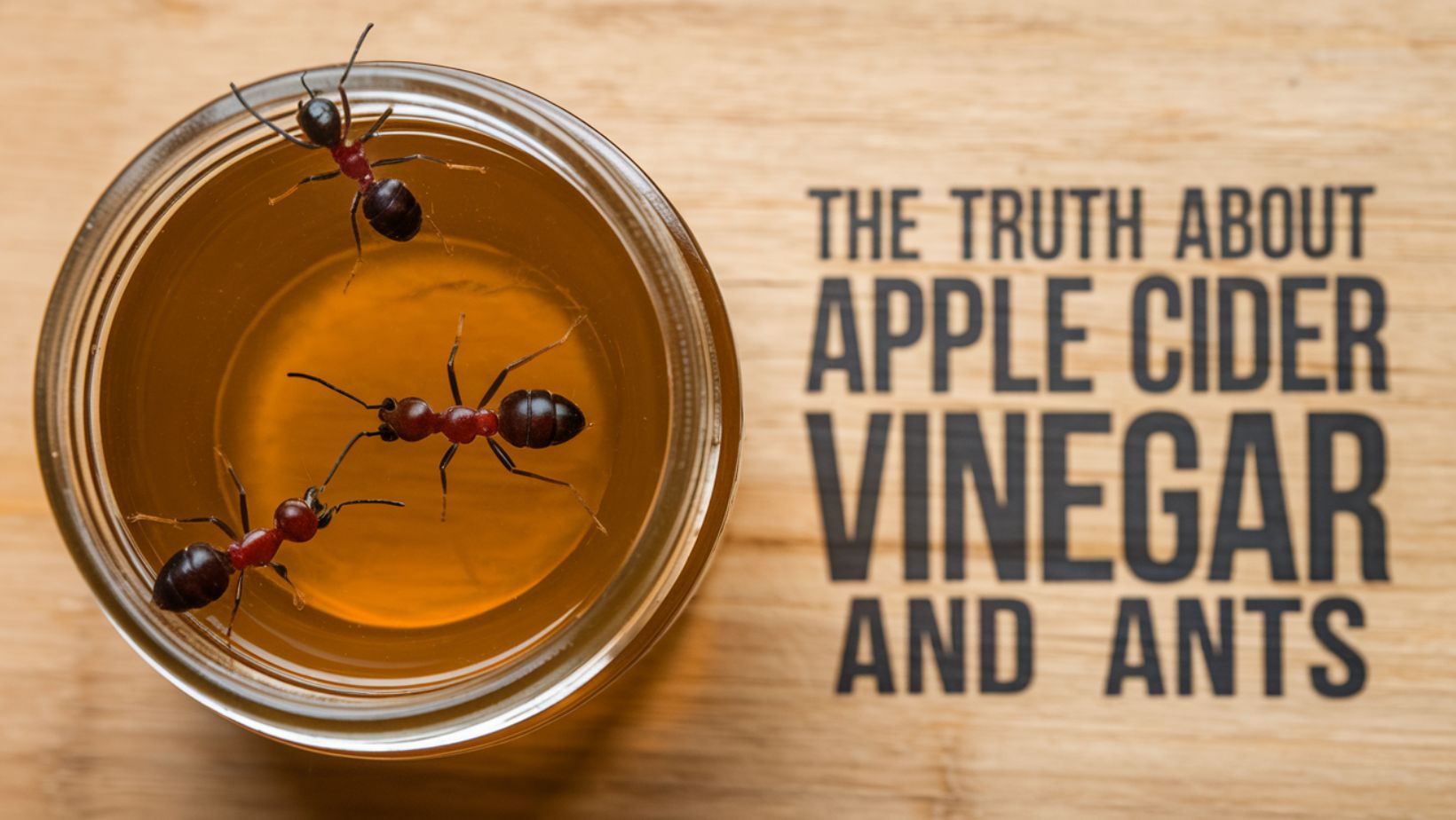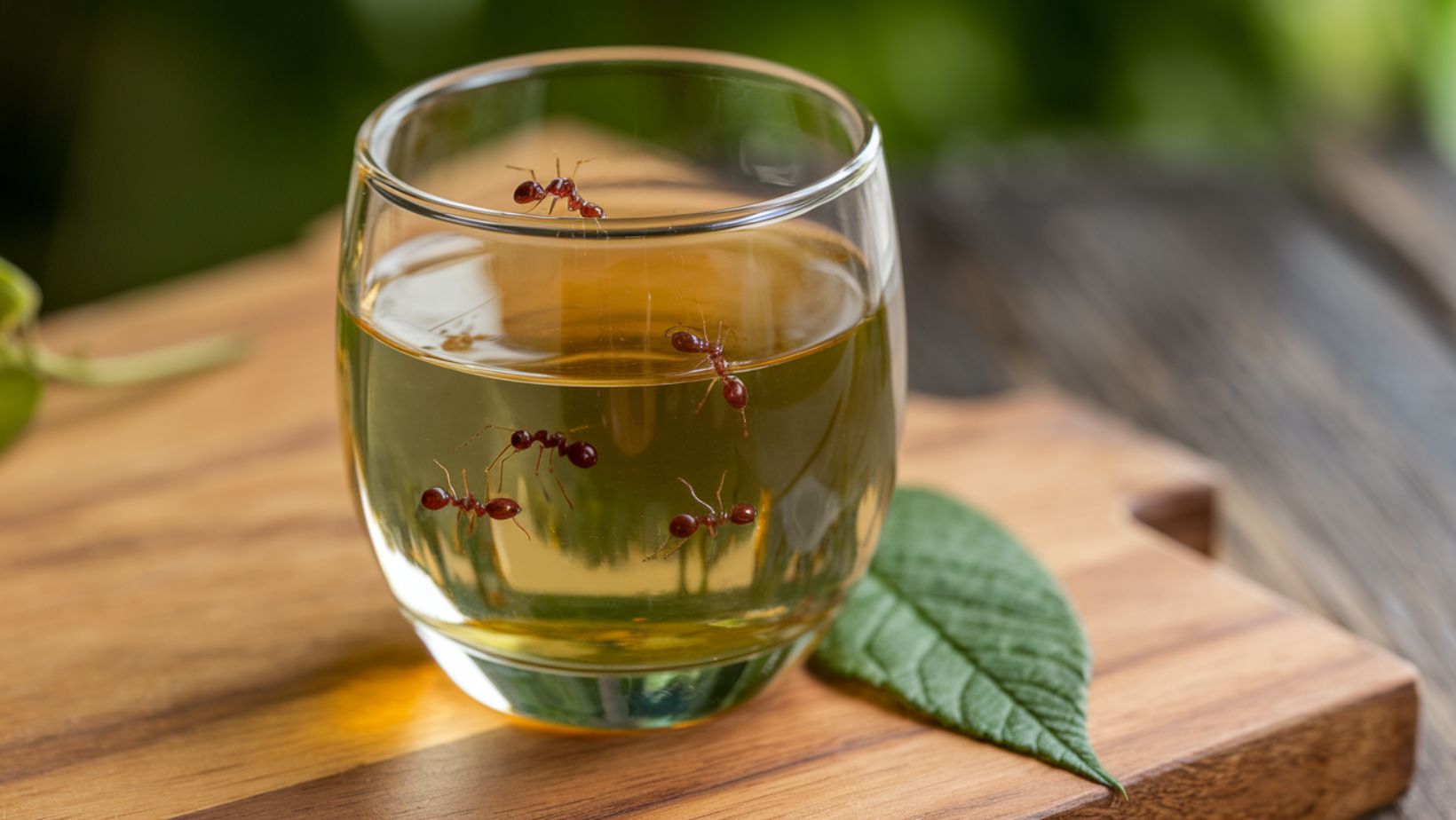As homeowners and gardeners seek natural solutions to pest problems, apple cider vinegar has emerged as a potential remedy for ant infestations. This common household item, known for its culinary uses and purported health benefits, is now being considered for its pest control properties. But does apple cider vinegar actually kill ants, or is it merely an old wives’ tale? Let’s delve into the science and expert opinions to uncover the truth behind this home remedy.
The Truth About Apple Cider Vinegar and Ants
To address the core question directly: apple cider vinegar does not kill ants outright. However, it can be an effective deterrent and disruptive agent in ant colonies. The strong scent of vinegar interferes with the pheromone trails that ants use to navigate and communicate, which can confuse them and discourage them from entering treated areas.
While it may not be lethal to ants, apple cider vinegar can play a role in natural pest management strategies by altering ant behavior and making your home less attractive to these insects.
Understanding How Apple Cider Vinegar Affects Ants
Apple cider vinegar’s effectiveness against ants stems from its acetic acid content. This compound produces a strong odor that ants find repulsive. When sprayed or wiped on surfaces, it masks the scent trails that ants leave behind to guide other colony members to food sources.
Dr. Emily Foster, an entomologist at Urban Pest Research Center, explains, “Ants rely heavily on chemical signals for navigation and communication. By disrupting these signals, apple cider vinegar creates confusion within the colony, potentially redirecting ants away from your living spaces.”
Moreover, the acidic nature of vinegar can be irritating to ants if they come into direct contact with it. While this irritation isn’t typically fatal, it can discourage ants from crossing vinegar-treated barriers. Some anecdotal reports suggest that prolonged exposure to vinegar solutions might impact the exoskeletons of ants, but scientific evidence for this effect is limited.
The Science Behind Ant Repellents
Research on natural ant repellents has shown mixed results. A study published in the Journal of Economic Entomology in 2018 examined various natural compounds for their effectiveness against Argentine ants. While vinegar was not specifically tested, other acidic substances showed some repellent properties. This suggests that the mechanism by which apple cider vinegar deters ants may have some scientific basis.
Dr. Mark Thompson, a pest control specialist, notes, “While apple cider vinegar isn’t a silver bullet for ant problems, its use aligns with integrated pest management principles. It’s a low-risk option that can be part of a broader strategy to manage ant populations without resorting to harsh chemicals.”
Practical Applications of Apple Cider Vinegar for Ant Control
For those looking to use apple cider vinegar as part of their ant management plan, there are several ways to apply it effectively:
1. Spray Solution: Mix equal parts water and apple cider vinegar in a spray bottle. This can be applied to areas where ants are frequently seen or along their travel routes.
2. Cleaning Agent: Use the vinegar solution to clean countertops, floors, and other surfaces. This not only deters ants but also removes their scent trails.
3. Barrier Method: Create a vinegar barrier around entry points or food storage areas to discourage ants from crossing.
4. Bait Stations: Some homeowners report success with mixing small amounts of sugar or borax with apple cider vinegar to create bait stations. However, this method’s effectiveness is debated among experts.
It’s important to note that while these methods can be helpful, they may require frequent reapplication, especially after cleaning or rainfall, to maintain their effectiveness.
Limitations and Considerations
While apple cider vinegar can be a useful tool in ant management, it’s not without limitations. Dr. Sarah Chen, an environmental toxicologist, cautions, “Apple cider vinegar is generally safe to use around humans and pets, but its strong odor can be off-putting. Additionally, its effectiveness can vary depending on the ant species and the severity of the infestation.”
For large or persistent ant problems, apple cider vinegar alone may not be sufficient. In these cases, it’s advisable to consult with a pest control professional who can assess the situation and recommend a comprehensive treatment plan. This might include identifying and sealing entry points, removing food sources, and potentially using targeted insecticides.
It’s also worth considering the potential impact of vinegar on plants if used in garden areas. While diluted vinegar solutions are generally safe, concentrated applications can alter soil pH and damage plant tissues. Always test a small area first and avoid using vinegar solutions directly on plants you wish to keep.
While apple cider vinegar doesn’t kill ants directly, it can be an effective and natural way to deter them from your living spaces. Its ability to disrupt ant pheromone trails and create barriers makes it a valuable tool in integrated pest management strategies. For those seeking eco-friendly solutions to minor ant problems, apple cider vinegar offers a low-risk option worth exploring. However, for significant infestations or persistent issues, combining this natural approach with professional pest control methods may yield the best results in maintaining an ant-free environment.

